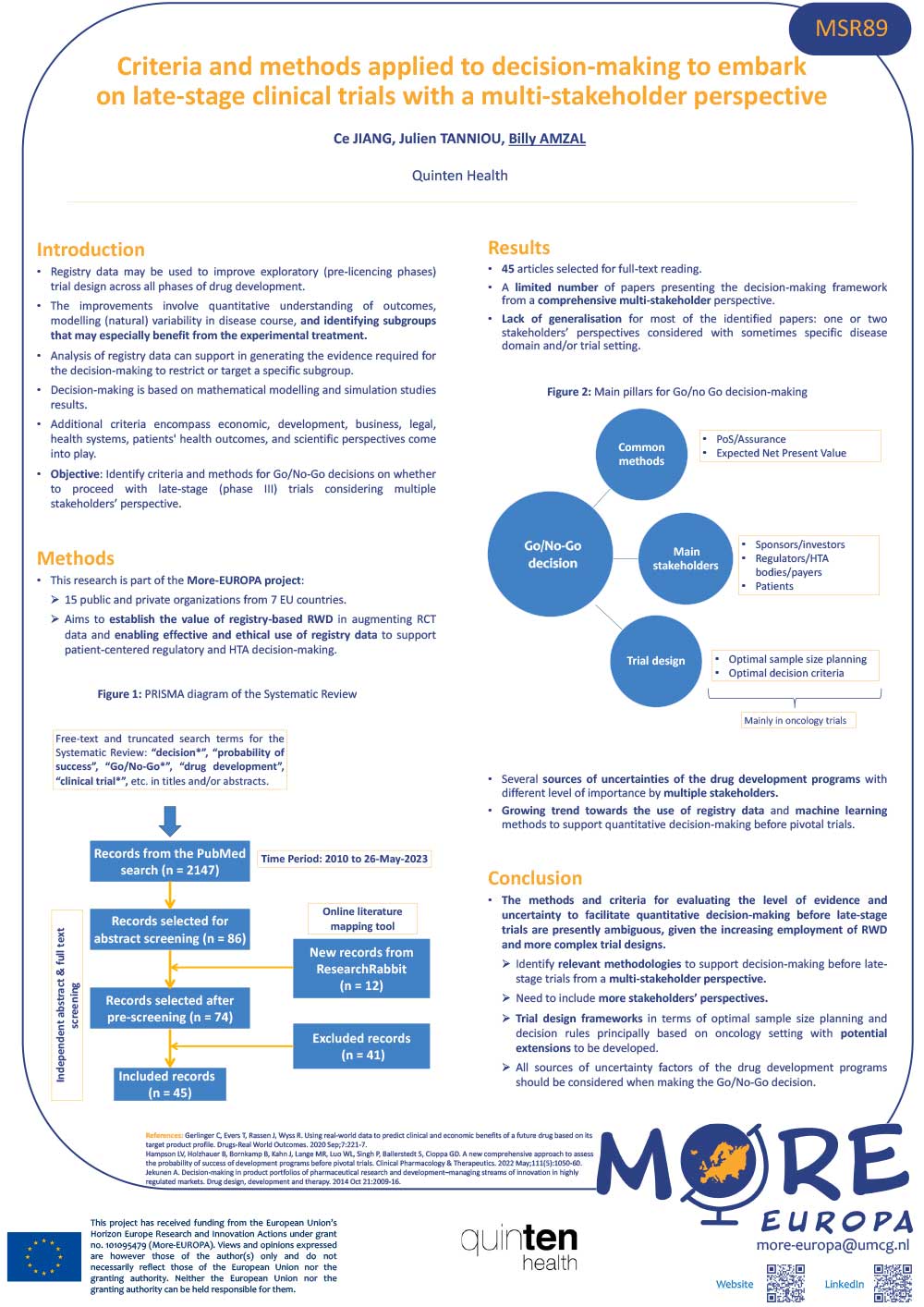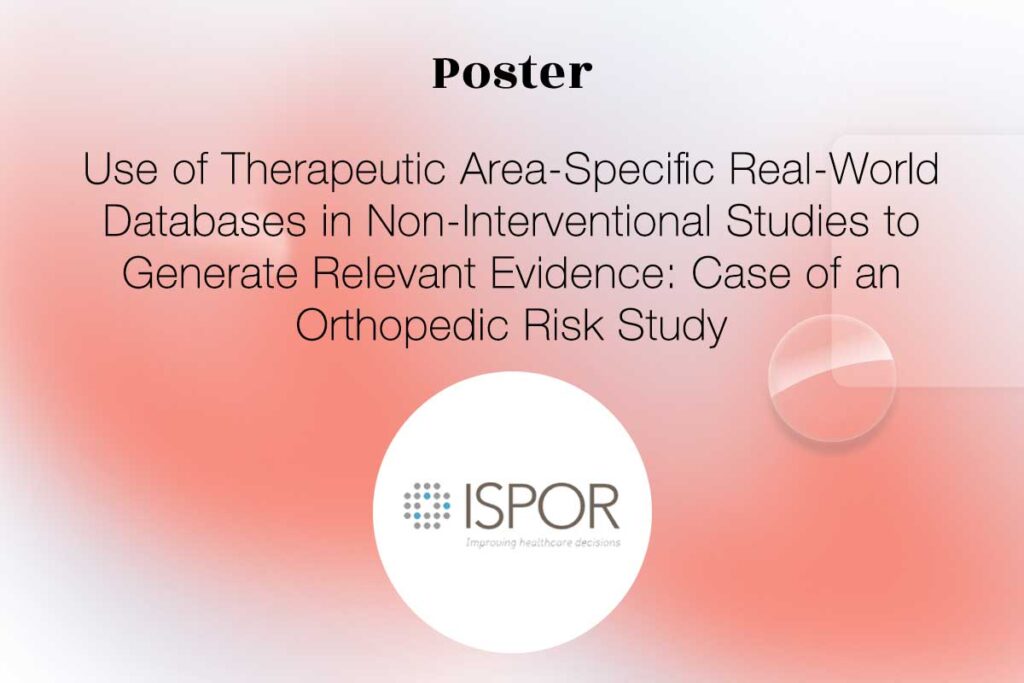Date: 14 November 2023
DOI: https://www.ispor.org/heor-resources/presentations-database/presentation/euro2023-3786/133490
CONFERENCE/VALUE IN HEALTH INFO:
2023-11, ISPOR Europe 2023, Copenhagen, Denmark
Value in Health, Volume 26, Issue 11, S2 (December 2023)
Abstract
Objectives
The More-EUROPA project aims at establishing the value of registry-based RWD in enhancing RCT data and enabling a more effective and ethical use of registry data to support patient-centred regulatory and HTA decision-making. Work package 1 (WP1) is specifically dedicated to developing innovative analytical tools that establish a methodological framework for quantifying the strength of evidence and uncertainty, mostly to address (pre-) licensing decisions and reimbursement questions using registry data to complement clinical trial data.
Methods
A systematic literature review was conducted to identify existing methodologies as regards mathematical/biostatistical portfolio decision-making approaches as a function of probability of success of phase 3 trials. Articles published between 2013 and 2023 were identified through MEDLINE database, employing free-text search terms such as “decision-making”, “decision-theoretic” and “probability of success”.
Results
Among the 2147 references initially identified from PubMed, approximately 50 articles were deemed relevant to our study. Methods revolve predominantly around Bayesian approaches, utilizing the probability of success as a key factor. Additionally, decision-theoretic approaches have also demonstrated their utility within this framework, where several scenarios could be considered, including single-stage trials, multi-stage trials with decision points, and the design of clinical trial series or drug development programs, through decision maker’s perspective and utility functions incorporation.
Conclusion
With increasing use of RWD as well as more complex trial designs, methods and standards to quantitatively assess the level of evidence and uncertainty for pre-licensing exploratory objectives are currently unclear. This literature review has identified relevant methodologies aimed at addressing this issue, encompassing a wider perspective beyond conventional financially driven portfolio decision-making and incorporating different stakeholder perspectives. We believe that such approaches together with increased access to RWD will contribute to enhancing decision-making processes.









